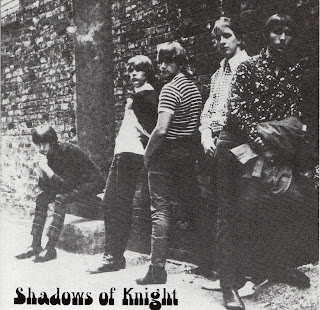Laibach - Laibach (1985)
Laibach's self-titled 1985 debut was regarded as an early industrial album, you can definitely hear where future alterna-electronic stars (Nine Inch Nails, Prodigy, etc.) learned their stuff. Since the band hailed from a small industrial town in Yugoslavia, it was only natural for their music to reflect their surroundings (look no further than the repetitive, pulsating factory-clang of the track "Battles"). But the band was also bent on incorporating politics into the mix, with songs like "Panorama," which cuts up a speech by a Yugoslavian president, and re-arranges it as a nonsensical narrative. The band also caused a stir visually by wearing traditional Alpine outfits and using the anti-Nazi art of Jon Heartfield (many people, especially outside Europe, mistakenly interpreted the band as a bunch of neo-Nazis). The music is consistently dark, creepy, and stark, which shows that Laibach were extremely cutting edge, and sadly far ahead of their time.








